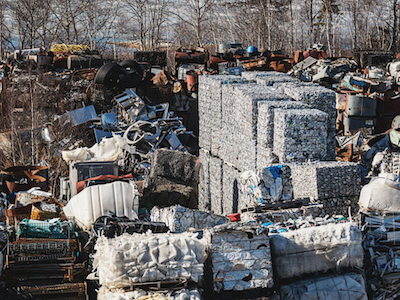Market
January 11, 2024
US scrap trade struggles to settle, Brazil prices flat m/m
The US scrap trade was still being finalised at the time of writing, and the tug-of-war between mills and dealers left the market in limbo for several days. Detroit and Midwest mills initially entered the market with bids lower m/m for both prime and secondary grades, but dealers were pushing to keep prices flat. Ultimately, scrap dealers in some regions agreed to reduce prices m/m across grades, albeit to a lesser degree than initially suggested. Other markets were still negotiating.
Scrap prices typically rise in January due to tighter supply of both prime and obsolete grades. However, steady automotive production and milder winter weather thus far resulted in greater availability of material. Additionally, some mills purchased heavily over the last few months and anticipated reduced buy programs for January. As such, mills across regions issued order cancellations in the first week of the month, particularly for #1 busheling, expecting that prices would drop. Dealers have since reported that buy programs were slightly higher m/m for most mills, and the price hike in December prompted better flows to scrap yards, leading them to push for flat m/m pricing.
Negotiations were still ongoing in the South and South Central regions as well, but any potential declines were expected to be muted since prices rose to a lesser degree in December. Supply and demand are better balanced in these markets, as production remained steady and inbound flows to scrap yards are still holding up.
Meanwhile, export pricing has fluctuated so far in the new year. Restocking activity in December supported the market, although Turkish mills struggled to pass through the rise in price to finished steel customers. Demand has been slow to resume so far in January, and prices for both rebar and HR coil were unchanged. Therefore, export prices edged lower m/m to $378 /t, FAS East Coast, for HMS 80:20 and $398 /t, FAS East Coast, for shredded scrap.
Strengthening pig iron prices in the US are also at play, largely fuelled by rising costs. While supply is sufficient, elevated production costs in Brazil put upward pressure on prices and squeezed mill margins. Buyers are still hesitant to purchase any significant volumes from Ukraine, not just because of the ongoing war with Russia, but also continued logistics issues and high freight rates.
In Brazil, domestic scrap prices remained stable m/m again at BRL 1,200/t as demand for scrap was weak due to lower steel production, while scrap prices bottomed out due to higher collection costs. Some Brazilian domestic mills had decreased steel production in December due to high supply as long product imports surged by 54% y/y in 2023.






